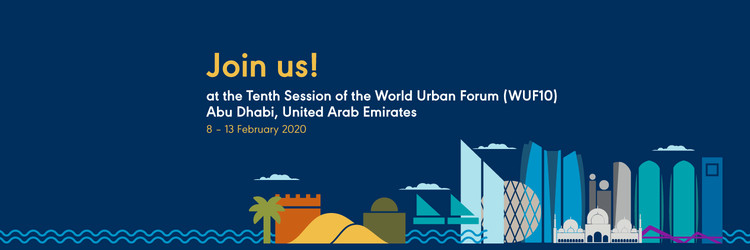
The Global Parliament of Mayors (GPM) Virtual Parliament the solution to accelerate digital democracy
GPM Chair, Peter Kurz, will represent the GPM at the 10th edition of the World Urban Forum (8-13 February) in Abu Dhabi. The theme of the Tenth Session is Cities of Opportunities: Connecting Culture and Innovation. The city of Mannheim is organising a side networking event together with the GPM on Sunday 9th of February ‘The GPM Virtual Parliament the solution to accelerate digital democracy.’ The networking event will highlight the ways in which the GPM is harnessing new technologies to bring large, medium and smaller cities together in a compelling new form of advocacy. It will also show that digitally empowered and emboldened cities can stimulate action in multilateral fora. By showcasing the Virtual Parliament, the networking event will solicit inputs and recommendations, and identifying concrete opportunities to scale-up the Virtual Parliament in participating city networks and cities.
Dialogue Themes
- Urbanization, Culture and Innovation
- Frontier Technologies and Sustainable Cities
The UN 2030 Agenda and the New Urban Agenda (NUA) are the main reference frameworks for a sustainable urban transformation. The NUA presents a vision for a more sustainable urban future. Through SDG 11, the UN 2030 agenda addresses cities and human settlements directly whereas many other SDGs can only be achieved in coordination with local actors. While policy is set at the national level, its effects, ramifications and implementation takes place on the local “urban” level, in cities. As a response, cities and their mayors are creating alliances with international organizations, shaping international agendas, and propelling cities into the centre of the international policy-making process. Many international actors, such as the UN or the EU, consider cities as crucial partners for addressing global challenges. However, cities are still largely excluded, at least formally and structurally, from international policy-making. Against this background, the concept of “urban diplomacy” has gained in importance over the last years. It comprises an ever-growing set of activities, which cities are carrying out today. The Global Parliament of Mayors (GPM) defines itself as a global city rights movement, based on local self-governance, which collaborates with city networks and international organisations by amplifying and publicizing their issues of concern and influencing global partners. The focus of this networking event is on highlighting the connecting power of GPM’s Virtual Parliament. The Virtual Parliament is a unique digital platform offering Mayors from all over the world the opportunity to exchange views, to debate on political issues, provide direct information and to engage in global policy decision making processes. In 2019, for the first time ever, the GPMs Virtual Parliament has facilitated a virtual debate leading to a resolution on “Empowering cities to cope with global challenges“, which was presented at the first UN Habitat Assembly. The Virtual Parliament is a tool in the hands of Mayors, which fosters digital democracy. Furthermore, it accelerates political inclusion by engaging especially Mayors from remote countries and the “global south”, often with limited capabilities of attending international political gatherings themselves. The GPMs Virtual Parliament helps cities pooling their resources and acting collectively to make their voices heard. Vice versa, the Global Parliament of Mayors offers internationals bodies such as UN-Habitat a unique accessible channel for direct communication and coordination with progressive Mayors from all over the world.
Background on the WUF
The World Urban Forum (WUF) was established in 2001 by the United Nations to address one of the most pressing issues facing the world today: rapid urbanization and its impact on communities, cities, economies, climate change and policies. Convened by UN-Habitat, the Forum is a high level, open and inclusive platform for addressing the challenges of sustainable urbanization.
